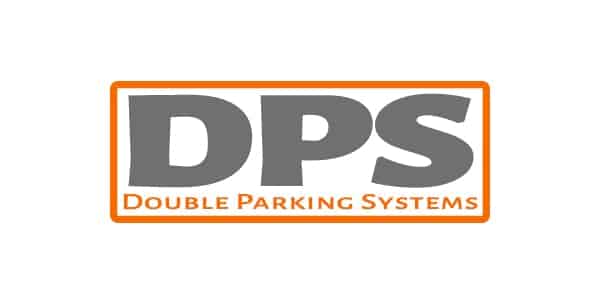What phone system should I choose?
The UK plans to switch off its analogue telephone services in 2025. What replacement digital phone system should you invest in to keep your business connected?
‘The Big Switch Off’ will bring an end to analogue phone lines in the UK. By 2025, all of BT’s ISDN (Integrated Services Digital Network) and Public Switch Telephone Network (PSTN) infrastructure will be fully phased out.
According to a 2021 survey by National Business Communications, 70% of UK businesses still use analogue landlines, and 60% have no idea what ‘The Big Switch Off’ is or what it means for them.
However, firms that rely on calls to conduct business will need a new digital phone system.
There are several different options to consider, so let’s lay out the features of the leading digital phone system options.
On-premise phone system
A digital on-premise system is physically installed in your building. The private branch exchange (PBX) box is then connected to each handset.
It might be connected to each phone with wires. Or wirelessly over the internet.
A new, digital, on-premise phone system will serve you long past 2025, but here are the things to consider:
- An on-premise system requires significant up-front capital expenditure.
- You need space to store the hardware.
- On-premise solutions will incur further costs for annual servicing and maintenance. You’ll need in-house or third-party IT support.
- For some organisations, on-premise could be more cost-effective when compared to a managed service (which also requires you to pay an individual licence fee for each user).
- Moving offices can be more difficult than with a cloud system
- You will be fully responsible for the security and resilience of the network in the event of a cyber attack, power loss or internet failure, which can make it less reliable than a managed cloud-based phone system.
This solution is suitable for an organisation on a fixed and controllable budget. It isn’t ideal for a remote/hybrid workforce or one that needs continuous, guaranteed uptime because it is reliant on your buildings connectivity and power, unlike a cloud system which has multiple layers of redundancy and guaranteed power.
Cloud phone system
These systems require no investment in on-premise hardware except handsets (if you choose to use them). Instead, your phone system will be hosted and managed in the cloud, by an external provider.
- A cloud phone system can quickly scale to accommodate additional users and is easily accessed by home workers through secure apps and VoIP handsets.
- A quality provider will host the system across multiple data centres, providing multiple redundancies in the event of downtime. It guarantees reliability for firms that need a constant connection.
- Costs vary, but you will likely need to pay a monthly system fee, a licence fee for each user, and additional set-up fees (handsets).
- Cloud systems can be accessed remotely, often via a mobile and desktop app. They can therefore be used by home, hybrid and remote workers.
- Updates are managed by your provider; therefore, they will ensure your system is using the latest version. Not only does this mean you are using the latest technology, but you will more secure against latest cyber threats.
This solution is best for organisations that require flexibility and have employees that might not always be working from the same location. As well as the best option for businesses prioritising resilience and security by providing an always-on solution.
Software-based phone systems
A rising star of the pandemic has been the software-based phone system. These typically run through video-conferencing software like Microsoft Teams.
- Systems like MS Teams were widely adopted for video call functionality and how they aligned with broader business applications – helping disparate workforces collaborate and continue working effectively from home.
- These platforms have higher monthly fees than cloud-based phone systems (with Microsoft pushing ‘substantive’ price rises in 2020 and 2022).
- They can lack the professional feel of specialist phone systems. With limited options to route calls, it is challenging to create a seamless, reliable experience for your customers.
Let’s be clear – these tools are not the same as phone systems. While Teams works for video conferencing, instant messaging and internal communication between colleagues. Something different is needed to field external calls. And, even if you can get customers on the phone, you can’t guarantee good connections.
Mobile phones
Mobiles are, and will remain, a crucial part of business communication. 86% of businesses plan to make calls from mobiles following ‘The Big Switch Off’, but those that do might encounter difficulties.
- For employees, using personal mobiles blurs the line between personal and professional. Mobiles are intrusive and harder to switch-off from at the end of the workday, threatening the work/life balance.
- For customers, using mobiles can make your business look small and less professional than you might like. Mobile contact details are associated with one-man bands and give the same impression as using a Gmail or Outlook email address for work.
- Mobiles extend the boundaries of your security network. Each device requires regular updates and is exposed to threats like phishing, malicious applications and Wi-Fi spoofing.
Mobiles might make an acceptable fallback for some types of small businesses unprepared to tackle ‘The Big Switch Off’. The cost of adoption can be low-to-nil and quick, with no training required. But the lack of professional customer management, security issues and employee disruptions mean that for most organisations they aren’t a good long-term alternative.
Conclusion
We hope this overview of the most popular alternatives to legacy phone systems puts your business in good stead ahead of the switch-off in 2025.
You can find out more about each option in other blogs from Beaming:
Do businesses still need a landline?
The difference between hosted and on premise VoIP phone systems
How do I choose the right hosted VoIP provider?
Or talk to us to see if our cloud hosted solution BeamRing is right for your business:
Read about businesses using BeamRing Cloud Phone

- Hosted Voice
- Telephony
- SME
Abbotprint
An ageing ISDN telephone system and a desire to be prepared for the future prompted the move to cloud voice technology for this innovative printing firm.

- BeamRing
- Telephony
- Broadband
- Education
- Not For Profit
Sandown School
Sandown School aims to form close relationships with families & the community. Until recently, the school’s telephone system was not providing the support the school needed.

- Fibre
- BeamRing
- Manufacturing
Astell Scientific
Having been at the cutting edge of technology for over 130 years, Astell Scientific knows that the technology they use to support their business also needs to be kept right up to date.

- BeamRing
- Manufacturing
- Telephony
Plastipack
Plastipack, world leading manufacturers of energy and resource saving products, weren’t satisfied with their current VoIP system. They wanted a solution that could do more.

- BeamRing
- Accountancy
- FTTC
Andrew M Wells Accountancy
Strengthening IT infrastructure & finding reliable support was a priority for this accountancy firm. Then, the Coronavirus pandemic sent everyone home to work.

- BeamRing
- FTTC
- SME
- Remote Working
Double Parking Systems
Moving to a new business location can be disruptive, but Beaming helped Double Parking Systems make a smooth transition.